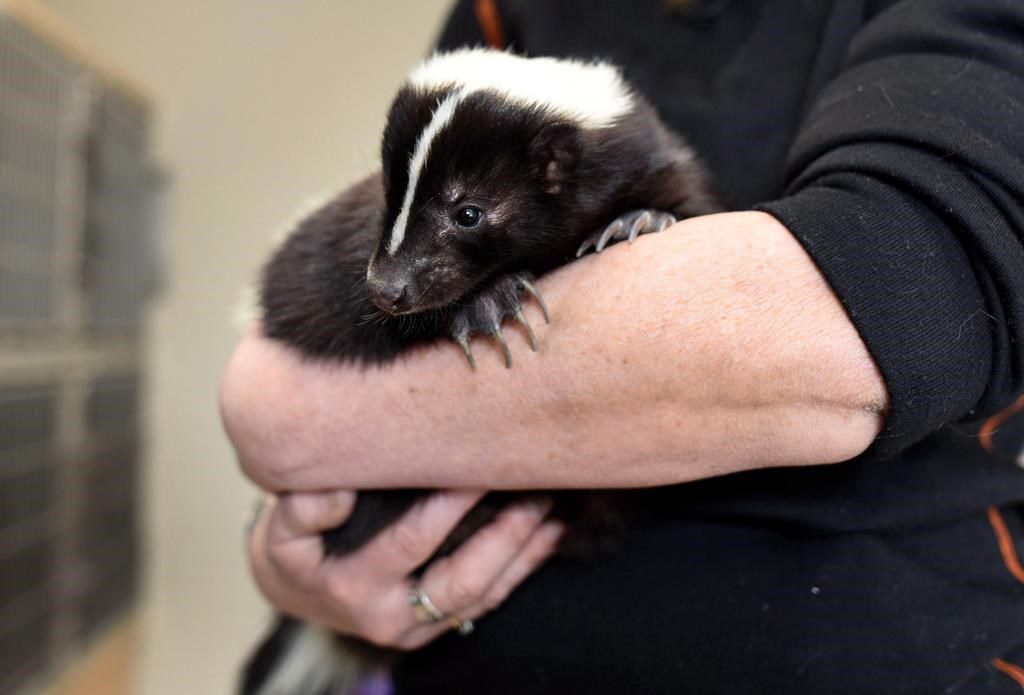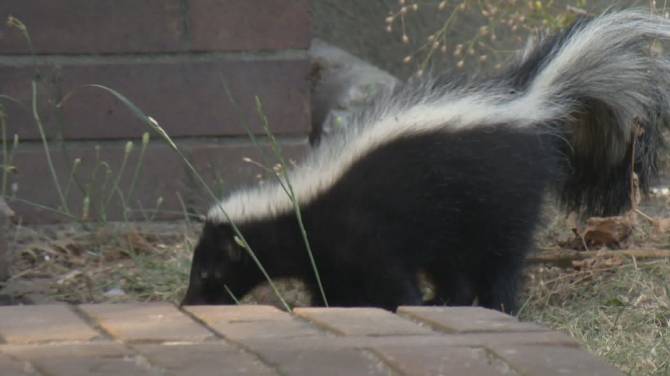One day, Slavko Babincak noticed people giving him strange looks as he went around town, but he couldn't understand why.
He later found out that the strong smell of skunk might have killed his sense of smell, or he simply got used to it.
The smell might have been so strong that it affected his sense of smell.
It's possible that he got used to the smell over time.
In any case, he went home to shower and change clothes after trapping skunks in Cold Lake, Alberta.
The city of Cold Lake, which has a population of 16,300, has hired Babincak to catch and relocate skunks so they don't bother the residents.
Cold Lake started offering this free service last year, and it has been included in the most recent budget.
Babincak has been in the pest control industry for over a decade, and he has been dealing with pests since his childhood in Serbia.
He has gained experience in dealing with skunks the hard way over the years.
According to him, getting sprayed in the face by a skunk can make you feel like vomiting.
There's not much that can be done if this happens.
Even though people suggest using tomato juice and other remedies, Babincak found that the best solution is to give it time.
Skunks are generally calm and don't spray frequently, but according to Babincak, even a few instances are too many.
He refers to skunks as "nomads," as they are often attracted to urban areas where there is an abundance of food.
Apart from the possibility of getting sprayed, catching a skunk is not that difficult, he explains.
Cat food and sardines are effective bait, but skunks aren't very picky.
He describes skunks as simple animals that just need food and a place to sleep.
Sometimes, an older skunk that is experienced in human trapping may require Babincak to ensure that his scent is not on the trap by cleaning it and wearing gloves.
He believes that the best solution is to prevent the problem through common sense. For example, people should not leave pet food or garbage in the yard.
If nothing deters them, a pregnant skunk might seek shelter under a deck or lumber pile, especially if there are no dogs around.
So far, Babincak has had a mixed record in catching skunks.
This year, he has dealt with two skunk calls, catching one easily while the other left on its own.
Last year, he received about 30 calls and successfully trapped about half of the skunks. Often, the skunks are just passing through and are gone by the time he arrives.
Once skunks are caught, he drives them about half an hour outside Cold Lake and releases them on Crown land.
There was one skunk that was so big that Babincak needed to use a trap intended for coyotes or foxes to catch it.
He mentioned that the large skunk weighed at least 15 pounds, if not more, and he had never seen such a big skunk before.
Releasing the giant skunk was uneventful for Babincak.
He simply opened the trap door, waited for the skunk to walk out, and observed it sniffing and digging bugs.
The mayor of Cold Lake, Craig Copeland, says that trapping skunks has been a changing process and one of many unique problems for a city that is on the edge of the forest wilderness.
Officers from Alberta Fish and Wildlife used to handle skunk calls. When that stopped, the city began lending out traps. However, residents would then catch the animals – or catch something else – and wonder what to do with it.
Therefore, it was time to seek professional assistance.
“It was simply a better approach than people borrowing the skunk traps and sometimes catching the neighbor’s cat,” Copeland explains.
“Everyone is supportive. I haven’t encountered anyone who is upset.”
Copeland mentions that Cold Lake allocates $6,000 each year to its skunk program and considers it money well used. The city pays $130 for each trap that is set up, and $250 if a skunk is caught within five days.
Despite Cold Lake’s proximity to the wilderness, Babincak says that its skunk situation isn’t much different from that in larger cities.
He believes that it's simply easier to get things done and resolve problems before they start to smell in a smaller community like Cold Lake.
“Pretty much everyone knows each other. You see people all the time, don’t you?” he remarks.
“So, better communication leads to the appropriate action in the office.




